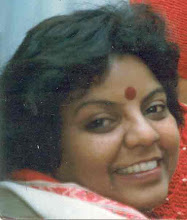
Nirupama Dutt's story for a friend of her youth
When one is feeling just a wee bit lost, lonely and low, then just delving into one’s past and reliving happy moments can well boost the spirit. I find myself doing this all too often. I go back to the days that were full of laughter and more often than not start laughing as I recall them.
In the hubbub of the urban jungles, laughter has indeed become a rare commodity. Thus, some body-and-mind healers have started organising laughter workshops where people can laugh their hearts out. My research on laughter says that nothing can quite match the quality of the laughter of youth and the link of laughing together is indeed a strong one. The purest form of laughter thrives in friendship, never have I laughed so well, and so much as I did in the company of my female friends in the good old days.
So during a recent visit to hometown Chandigarh, I was shell-shocked when I learnt that my friend Ritu had developed a serious medical condition and it could mean anything, any time. My first selfish reaction was that it could not be because we still had some more laughing to do. The next thought was that her daughter was much too young. Then I reasoned to myself that cancer is now curable. But I kept putting off my visit to her. We hadn’t met for many years and I found it difficult to face the situation that was suddenly no laughing matter.
I recalled how we laughed when we pocketed the coins left by our teacher of journalism, Mr Tara Chand Gupta, as tip for the waiter in the university coffee house so that the afternoon cup of tea was ensured. During our month of training in Delhi’s Bahadur Shah Zafar Marg we made it to the World Book Fair at Pragati Maidan. For this we took a crazy detour across the railway track and crawled under a back-gate to save spending a rupee and a half on the entrance ticket. How we had laughed at our own wild feat. Once roaming around in the inner circle of Connaught Place, some silly sight triggered our laughter and we laughed for nearly an hour.
And here I was bracing myself on how to meet her under these uncalled-for circumstances. Well, I did go and there I found Ritu at her charming cheerful best. Chemotherapy had taken its toll on her beautiful shock of auburn hair but with a colourful scarf tied on her head there she was holding forth on her recent reading. Playing the ideal host, she was arranging a cup of tea for this one and a cold drink for that one. When I begged off a drink because of my blood getting a bit too sugary, she let out that old belly laugh of hers and said, “Ah! What alluring things we talked of in the past! And now we talk of diabetes and cancer!” That got me laughing too.
As long as there is laughter, there is hope. I know one day we will be sitting together and laughing our guts out as I tell her, “Ritu! You clever girl. You have beaten the big C too.”
Post script: And she did beat the Big C by going away with a smile on a cold day in January some years ago.

